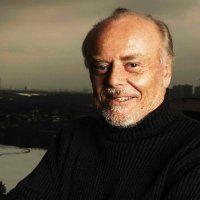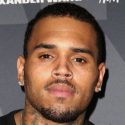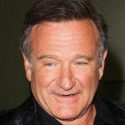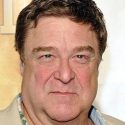Tim Knight Death Fact Check
Tim is alive and kicking.
Please ignore rumors and hoaxes.
If you have any unfortunate news that this page should be update with, please let us know using this form.
Tim Knight - Biography
Tim Knight has won both Emmy and Sigma Delta Chi awards for writing, producing, directing and hosting broadcast documentaries.He’s worked for three newspapers, Zambia TV, United Press International, ABC TV and Radio, NBC, PBS and the Canadian Broadcasting Corporation (CBC).He’s done just about everything in the journalism field — writer, reporter, anchor, interviewer, war correspondent, documentary director, script doctor, executive producer and trainer.He specializes in communicating — particularly storytelling, story structure, writing, performing, interviewing and journalistic ethics.As a working journalist he covered stories in South Africa, Namibia, Zimbabwe, Zambia, Congo (three years and two wars), Liberia, Guinea, Nigeria, Senegal, Ghana, Côte d'Ivoire, Great Britain, Russia, Canada and most of the states in the U.S.He produced the CBC’s flagship news program, The National, and was Executive Producer, TV News & Current Affairs, CBC Ottawa.For 10 years he served as Executive Producer and lead trainer for CBC-TV Journalism Training.Then he noticed the time and quit to form his own TV documentary production company, KnightHawk Communications Inc. (see Inside Noah’s Ark), and international training and communications consulting company, Tim Knight + Associates.Over the years, he’s trained thousands of working broadcast journalists and documentary film makers in Canada, the U.S. (five years as Current Affairs and Documentary Consultant to PBS), Jamaica, Mauritius, Spain, Ireland, Finland, Germany, Russia, Bosnia and Herzegovina, Ghana and South Africa (12 workshops for both national networks over 10 years). (See Training Reviews)In Canada alone, he led workshops for journalists and film-makers from the CBC; Radio-Canada; CTV; The AboriginalPeoples Television Network (APTN); the National Aboriginal Communications Society; TV-5; Wawatay; The Sports Network (TSN); TVOntario; Radio-Québec; TV-A; VideoTron; Vision TV; Discovery Network; HGTV; The Real News and Shaw Cable among others.Workshops and presentations for professional groups include the International Television Workshop (Rockport, Maine); the Commonwealth Journalists Association; INPUT (keynote speaker at the 2002 International Public Service TV Producer’s Rotterdam Conference); Médecins Sans Frontières; the Canadian International Development Agency (CIDA); the Radio and Television News Directors Association; the Innoversity Creative Summit; Journalists For Human Rights and the Canadian Association of Journalists. He also received the Native American Public Broadcasting Consortium Award.He’s a former director of the Writers Guild of America (East) and is an Advisory Board member for both Journalists For Human Rights and the Innoversity Creative Summit.Some highlights along the way:Knight started journalism as a very young newspaper reporter in South Africa. His exclusive report for the Sunday Express on the funeral of the 69 victims of the Sharpeville police massacre was one of many anti-apartheid stories which made it wise for him to take his family across the border to Zimbabwe then on to Zambia.As United Press International correspondent in the Congo, he and a United Nations reconnaissance team led by the U.N.’s chief spy were captured and beaten by Katangese rebels.The story made headlines around the world and is chapter 22, The Man in the Red Bandanna, in Knight’s book Storytelling And The Anima Factor.In New York, he was part of the team that produced WABC’s Eyewitness News, described by Marshall McLuhan as “a revolutionary event inWith United Nations captives and rebel Congolese captors.telecommunications.” For better or worse, Eyewitness News is still the industry standard for local TV news.The closest he got to a formal tertiary education was producing ABC-TV’s coverage of the student riots at Columbia and Yale universities in the early seventies, guest-lecturing at dozens of journalism schools and teaching a semester on Social Documentary at Wilfrid Laurier University.His ABC-TV documentary on the Black Panthers never screened in its entirety because Apollo 13 broadcast “Houston, we’ve had a problem” 10 minutes after the program rolled. So the network cut to space and never returned.He covered a Klu Klux Klan cross-burning in Pennsylvania, freedom marches in Mississippi, the funeral of Malcolm X and the founding conference of the Radical Women’s Movement in New York (a group of the more radical delegates seized much of his best footage, threw it in the East River).He dropped acid with “turn on, tune in and drop out” guru Timothy Leary for his Emmy-winning ABC documentary LSD: Trip to Where? and was the NBC reporter covering the Brooklyn bank hostage-taking filmed as Dog Day Afternoon.Also for NBC, he filmed and narrated his own vasectomy operation.He’s written documentaries for UNESCO — he recommends the splendidly civilized company in the U.N. Delegate’s Lounge — and news for ABC anchor, Peter Jennings.In the line of duty he’s met three prime ministers and seven presidents. Nelson Mandela impressed him the most. Invited to Mandela’s 81st. birthday celebration in Johannesburg, he suggested to the former South African president and Nobel Prize winner that the only actor who could play him in the planned movie on his life was Morgan Freeman, with whom Knight had collaborated on a never-finished book. Nine years later came the movie Invictus.He wrote and narrated both hours of The Russians Are Coming for CBC Radio’s prestigious Ideas program, described as “the series for people who just enjoy thinking.”In 2008 he executive produced, co-directed, wrote and narrated Inside Noah’s Ark, a three-hour wildlife series shot in South Africa for the Discovery Channel, also aired by Animal Planet, PBS and 15 international broadcasters. Its focus is that wildlife reserves are no longer truly wild but have to be managed like giant ranches — huge zoos — if they’re to survive.In 2009 he was writer-in-residence at the world’s most notorious resort, Hedonism ll, in Negril, Jamaica.Right now, he’s in pre-production for 16 versions of the life and times of Queen Elizabeth ll (she’s sovereign of 16 countries).He’s trained executives in writing, performing and interviewing (but never in how to deceive journalists) for, among others, Bank of Montreal, The Body Shop, Consumers’ Gas, the RCMP and the Ontario Provincial Police.Knight has written three books on communication and journalism including Storytelling And The Anima Factor, now in its second edition, and CBC’s own The Television Storyteller: A Guide for TV Journalists.And he’s made some 40 TV and radio documentaries for four different North American networks while winning two major awards: BulletU.S. National Academy of Television Arts and Sciences Emmy award for “Outstanding Program Achievement” — LSD: The Trip To Where? (ABC-TV) BulletSigma Delta Chi Deadline Award for “Excellence in Televising News”, documentary on the New York Times — The Great Grey Lady. (PBS)Tim Knight believes that journalists are servants of the people and that free and honest journalism is the vital cornerstone upon which liberal democracy is built and depends.He’s convinced that as journalism goes, so goes democracy.








